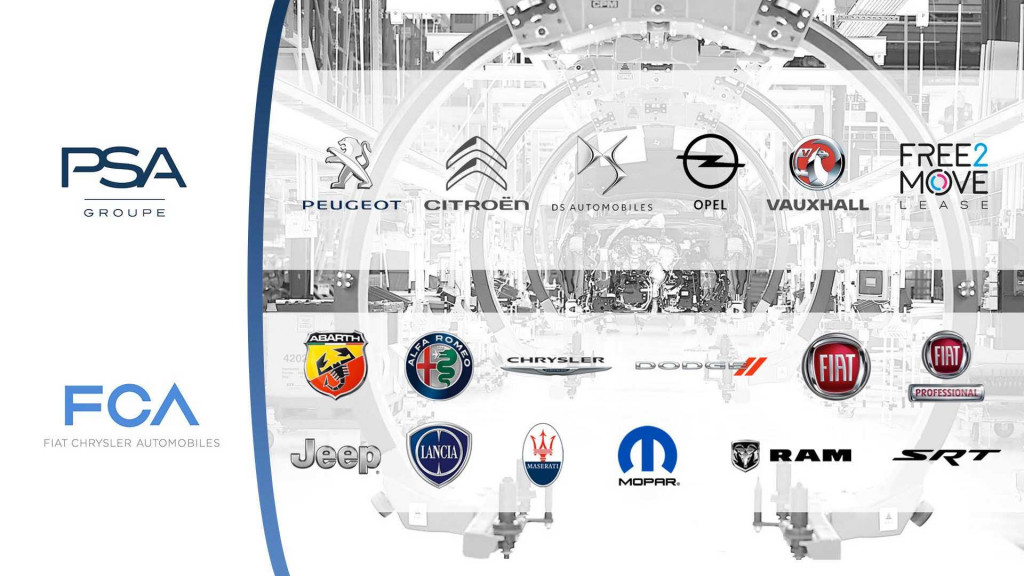The merger between Fiat Chrysler Automobiles (FCA) and France's PSA Group to form Stellantis has been approved by the automakers' shareholders, the Associated Press reported Monday.
Stellantis will be the world's fourth largest automaker, behind the Volkswagen Group, Toyota, and the Renault-Nissan-Mitsubishi Alliance, according to the report. The combined automakers sold 7.9 million units globally in 2019, down from 8.7 million in 2018. All that's left to do to complete the merger is issue a stock for the new company. That is expected to happen Jan. 18 in Europe and Jan. 19 in the U.S.
Announced in October 2019, the merger is nominally a 50/50 affair, though PSA will have a slight advantage. Current PSA CEO Carlos Tavares will serve as CEO of the merged company, and Stellantis' board will be made up of six members from PSA and five from FCA. Tavares could take control of the newly merged company as early as this month, while current FCA CEO Mike Manley will head Stellantis' North American operations, the AP reported.

FCA and PSA Group brands
Cost savings were a major motivation for the merger. Manley told the AP that Stellantis expects to realize 40% cost savings from sharing vehicle platforms, plus 35% from joint purchasing of components, and 7% from sales and administrative costs. Additional savings will be realized by optimizing logistics, parts sales, supply chains, and quality.
Merger talks proceeded steadily through 2020 despite the coronavirus pandemic. The Stellantis name—derived from the Latin root "stello," meaning "to brighten with stars"—was announced in July, and a logo followed in November.
Stellantis will inherit 14 brands from FCA and PSA, including Peugeot, Citroën, DS, and Opel/Vauxhall from PSA, and Chrysler, Dodge, Jeep, Ram, Fiat, Alfa Romeo, and Maserati from FCA. However, it's unclear if all of those brands will survive as Stellantis looks to realize its projected cost savings.